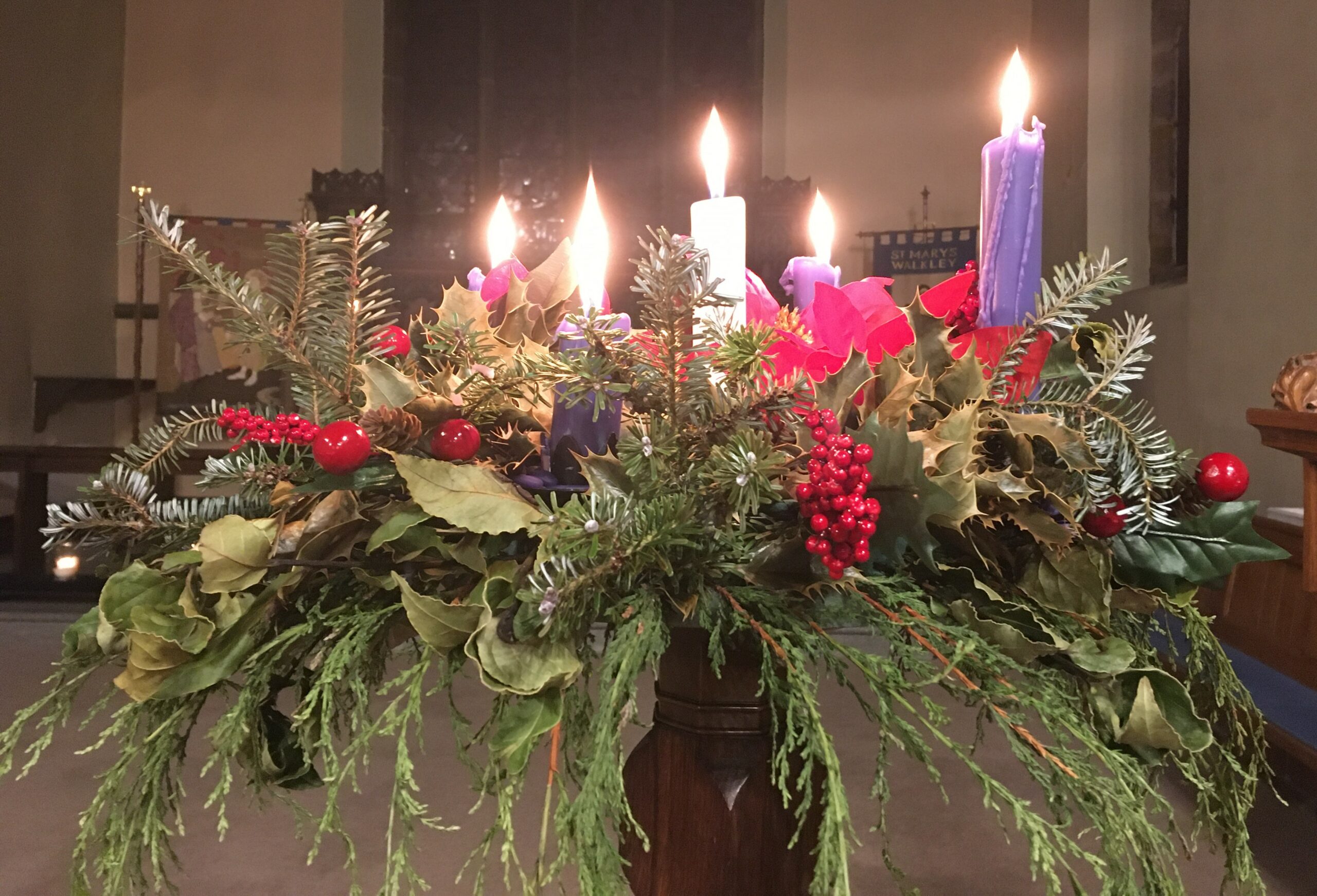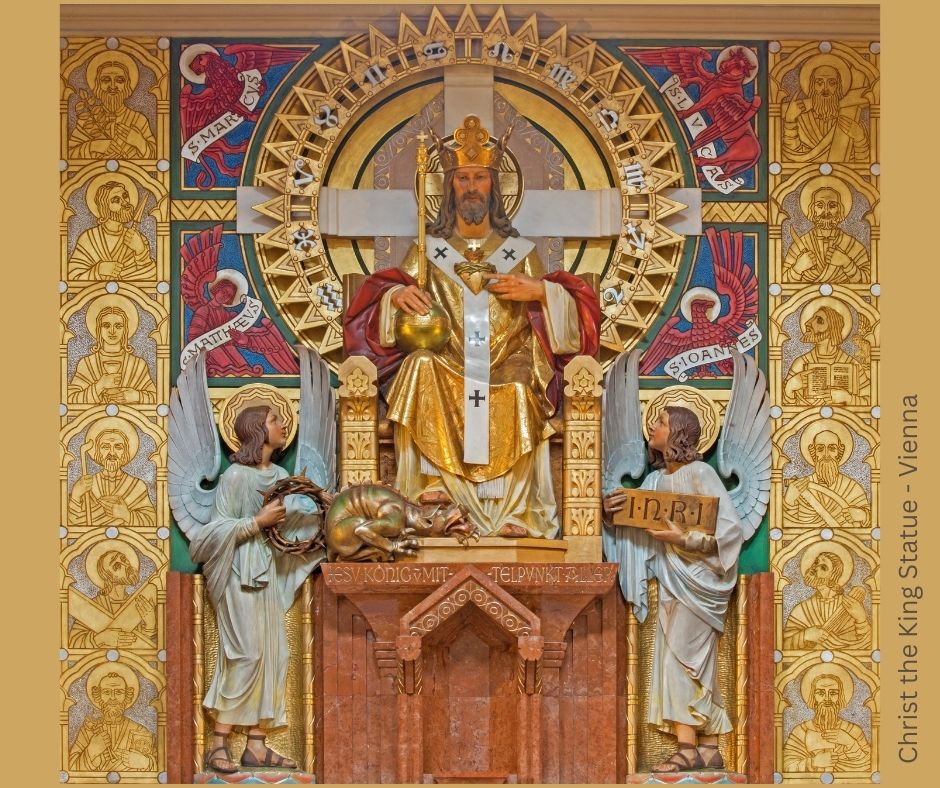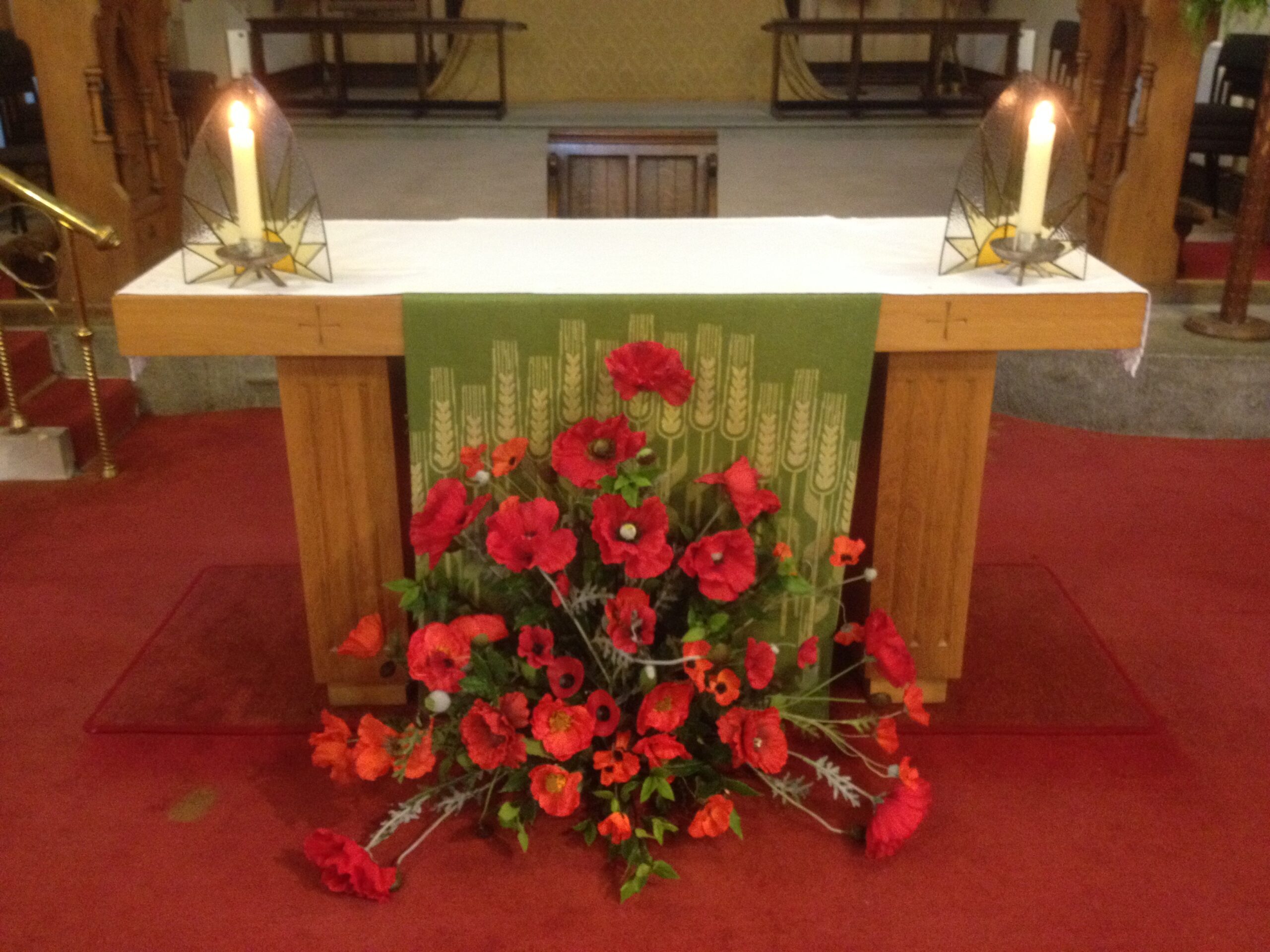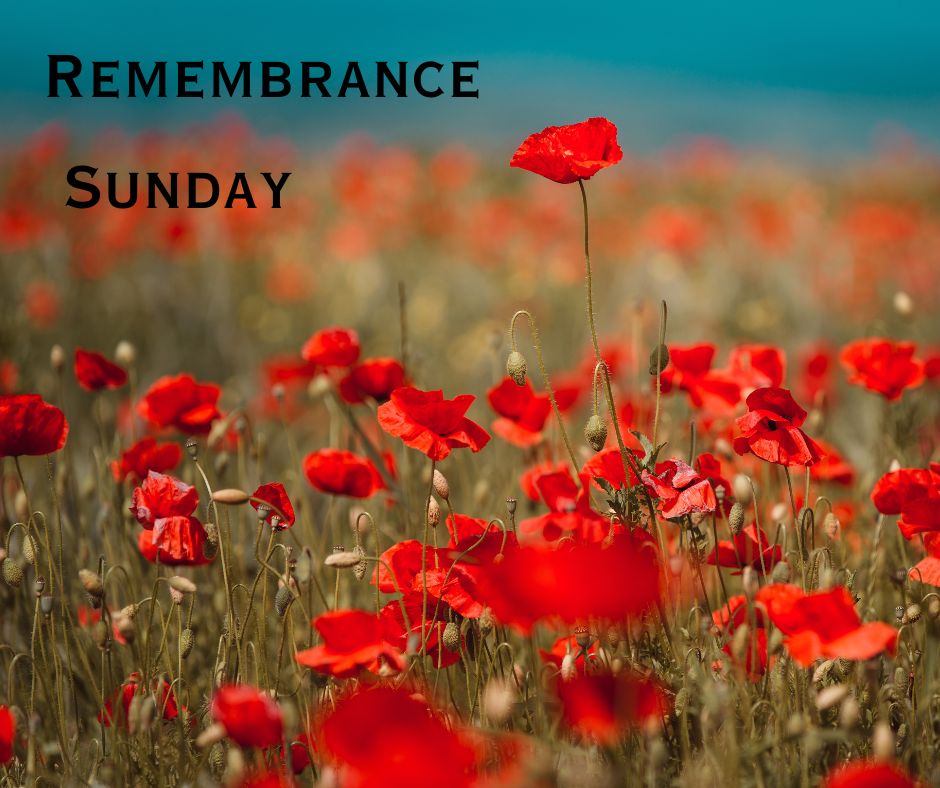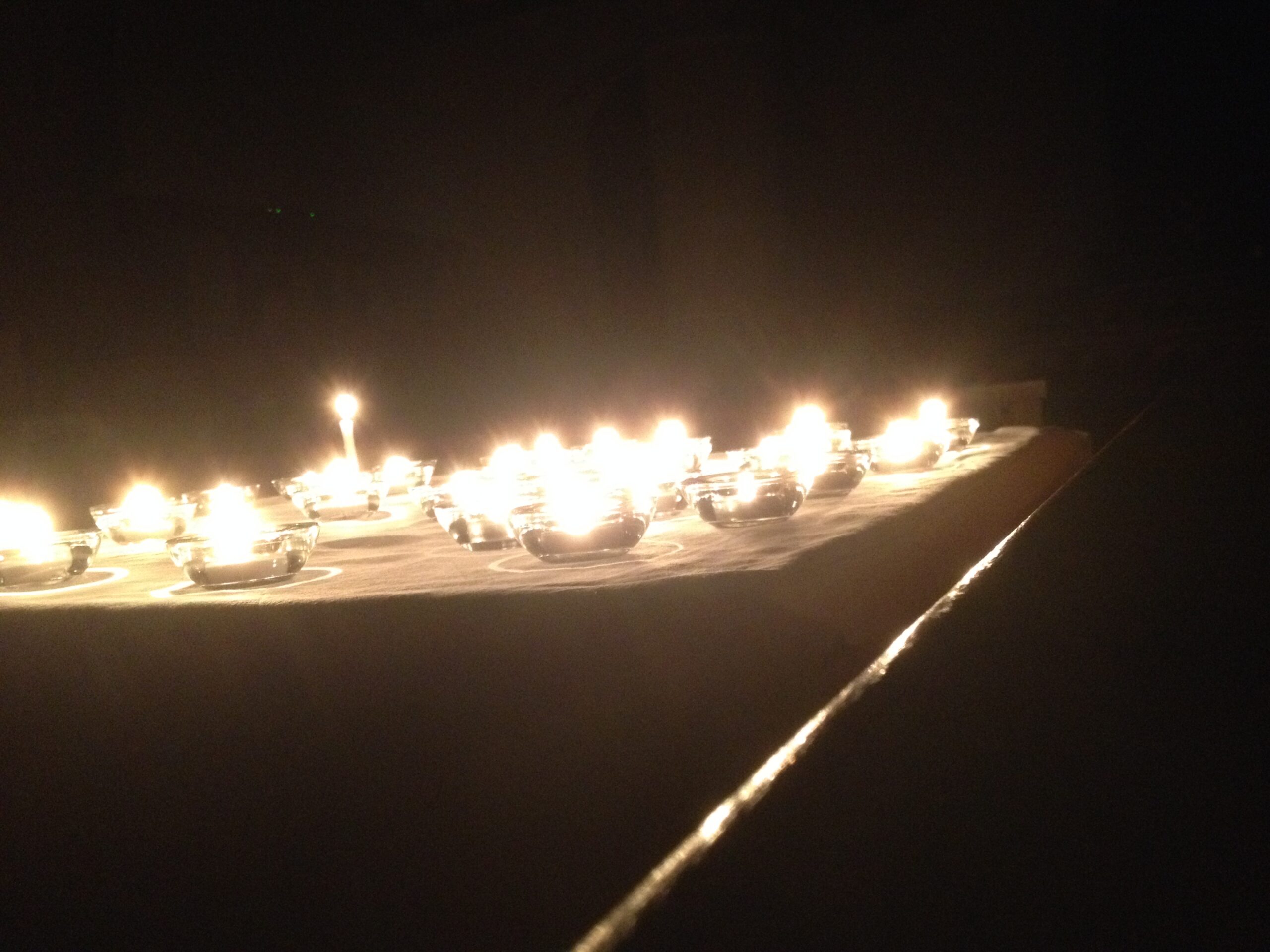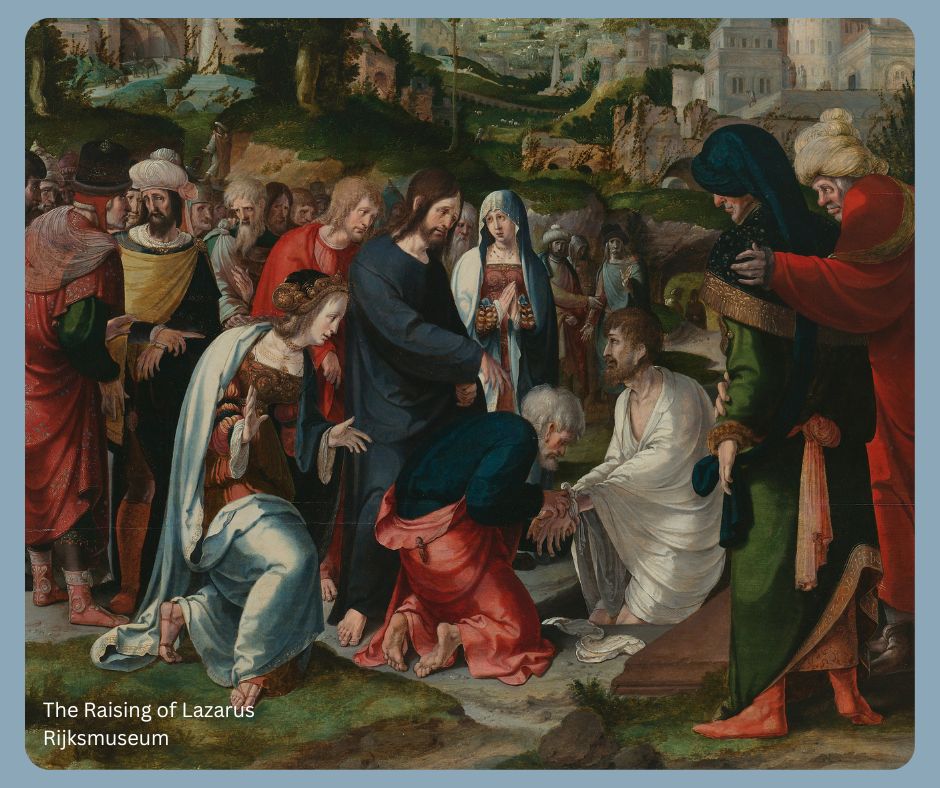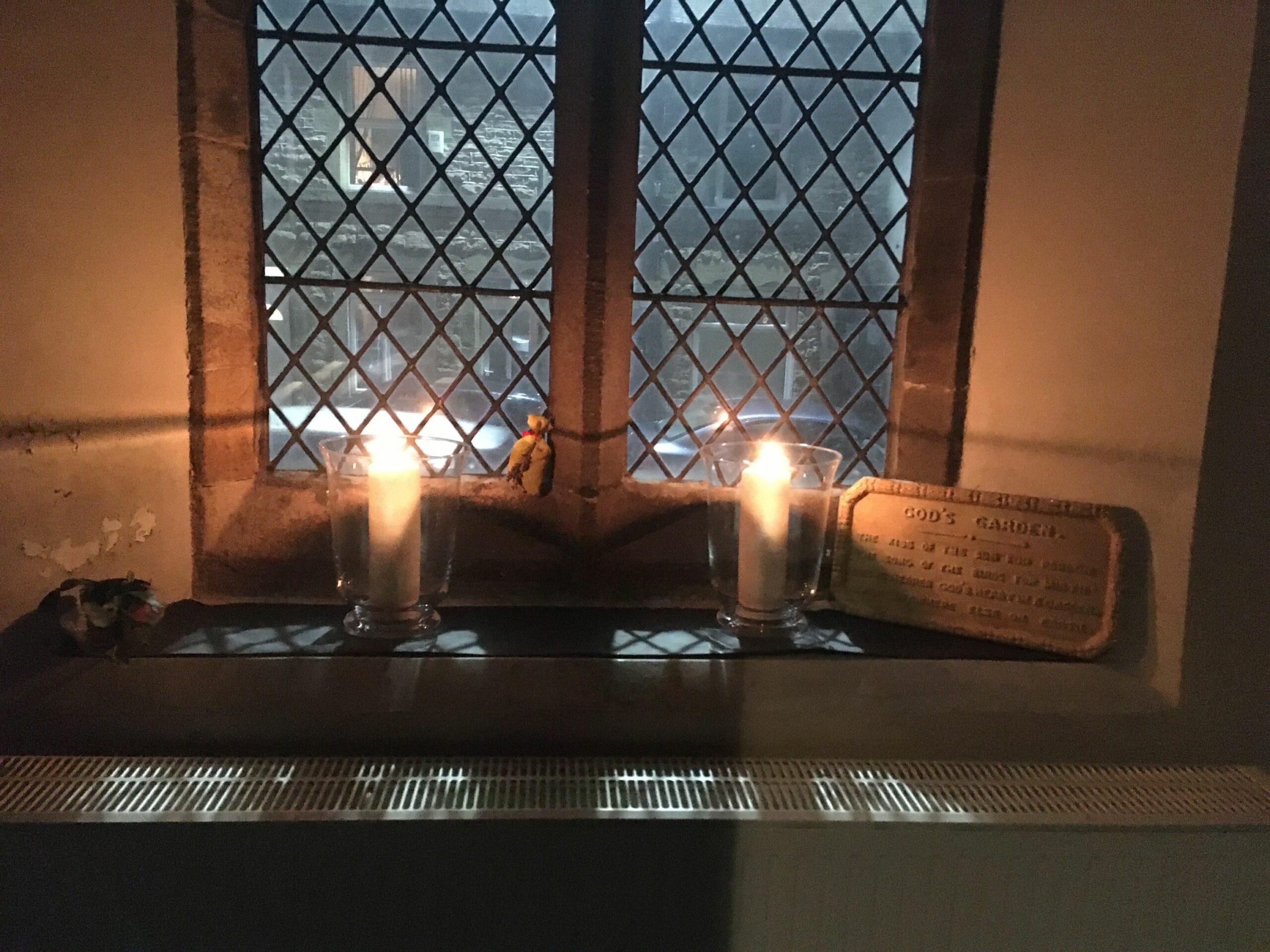
Watch this week's service on YouTube
Download the order of service here: 24 12 08 2nd Sunday of Advent Eucharist
Read this week's Church News
The Readings
Scripture Quotations are from: New Revised Standard Version Bible: Anglicized Edition, copyright © 1989, 1995 National Council of the Churches of Christ in the United States of America. Used by permission. All rights reserved worldwide. http://nrsvbibles.org
The Sermon
By Joe, Reader at St Mary's.
When I hear today’s Gospel reading from Luke, two things spring to
mind from my childhood; the song ‘Prepare ye the way of the Lord’
from the musical ‘Godspell’…and JCBs. Only the mind of a 12 year old
boy can take ‘Every valley will be filled in’ literally.
Today’s Gospel passage from Luke 3 continues our Advent journey.
Advent, this season of anticipation and waiting, is a time for us to
reflect, prepare, and align our hearts with the coming of
Christ—both the commemoration of His birth and the promise of His
return.
Luke provides us with a specific time and place: "In the fifteenth year
of the reign of Tiberius Caesar, when Pontius Pilate was governor of
Judea..."; And then after giving us a cast list of the powerful,
representing the most powerful empire on Earth and local royalty
and theocracy, he introduces us to John the Baptist:
“the word of God came to John son of Zechariah in the
wilderness”
The voice of a common man, a humble man, crying out in the
wilderness, fired with passion, delivering a new message to anyone
who will listen.
Today’s Gospel invites us to reflect on what true preparation for the
coming of Christ looks like.
John’s Ministry begins with a call to repentance: “Prepare the way
for the Lord, make straight paths for him.” This echoes the prophecy
of Isaiah, reminding us that John’s role was not only to proclaim but
to prepare the people for an encounter with God.
Repentance should be at the heart of our Advent preparation. The
Greek word for repentance, metanoia, means a transformation of
the mind, a turning away from sin and toward God. John challenges
us to confront the obstacles in our lives that hinder our relationship
with God. What are the “crooked paths” in our hearts that need to
be made straight? What valleys of despair need to be filled with
hope, and what mountains of pride need to be levelled? And – no
JCBs required for this momentous task.
We live in a world that often resists the notion of sin or the need for
transformation, and a call to repentance like this might make us feel
uncomfortable, or even ashamed. But repentance is not about
shame; it is about letting go, laying down our burdens,
acknowledging where we have fallen short in our relationship with
God, and being able to start again by accepting God’s grace anew.
John preaches in the wilderness—a stark, barren landscape that is
both literal and symbolic. The Israelites wandered there for forty
years, learning to trust in God. Jesus Himself would later spend forty
days in the wilderness, preparing for His public ministry. The
wilderness is a testing place, a place of transformation.
For us, the wilderness is rarely a literal landscape, but instead
represents those moments in life where we feel lost, uncertain, or
vulnerable. We may use words like ‘desolate’ and ‘arid’ to describe
our inner lives at these times. But it is often in these desolate times
that we are most open to encountering God.
Advent invites us into a kind of spiritual wilderness, stripping away
distractions and inviting us to focus on what truly matters. I know –
difficult when the world is chucking glitter at us from all directions.
But the wilderness is also a place of clarity. Away from the noise and
busyness of daily life, we can hear the voice of God more clearly.
John’s cry in the wilderness is not drowned out by competing voices;
it rings out with urgency and purpose.
I am reminded of my own time in Alaska, and the words of an RAF
pilot quoted by CS Lewis:
“I know there’s a God. I’ve felt Him: out alone in the desert at
night: the tremendous mystery.”
Our first Advent challenge, then, is to create our own "wilderness"
spaces this Advent—times of quiet reflection where we can hear
God’s call.
Luke’s Gospel doesn’t stop with repentance. John’s mission is framed
by that vision of transformation:
"Every valley shall be filled, every mountain and hill made low.
The crooked roads shall become straight, the rough ways
smooth. And all people will see God’s salvation."
This would have been a powerful image for the people; putting a
road through the wilderness would not be an easy task. But God’s
coming kingdom is radical; it opens up everything, barriers are
removed, injustices are corrected, and all are invited to partake in
God’s salvation. The physical imagery of valleys and mountains also
points to a spiritual levelling. In God’s kingdom, there is no hierarchy;
all are equal before Him. The positions of the mighty and powerful
that we heard of at the start of the Gospel are irrelevant in this new
kingdom.
As we prepare for Christmas, it’s easy to get caught up in the
external preparations—decorating our homes, buying gifts, planning
celebrations. These things are not inherently bad, but they can
distract us from the deeper preparation God desires.
Finally, Luke’s Gospel culminates in a promise: "And all people will
see God’s salvation." This is the heart of the Advent message.
Salvation is not a reward for the righteous; it is a gift for all who turn
to God. The good news of Jesus Christ is for everyone who is willing
to accept the grace of God in to their lives.
This promise challenges us to broaden our vision. Who are the
people in our lives who need to experience God’s love and grace?
How can we, like John, be messengers of hope and reconciliation?
Advent is not just about preparing our own hearts; it is about
preparing the way for others to encounter Christ.
When we leave here today, let’s take John’s call to heart. Prepare the
way for the Lord - in our homes, here in church, in our hearts and
communities. Let’s examine our lives, repent of what is holding us
back, and embrace the hope and transformation that God offers.
Advent is a time of waiting, but it is not passive waiting. It is active,
expectant, hope-filled waiting. It is a time to reflect on the light of
Christ that has already come into the world and to prepare for the
fullness of His kingdom.
Let’s ask – what is Advent to us?
Advent is a time to ask: How can we participate in God’s
transformative work? How can we make the world a little more like
His kingdom? How we do this is a personal matter; we may be
levelling the landscape in our own personal inner wilderness, or we
may be looking outward to the world and trying to remove barriers
and injustices. But prepare.
Each week we light our Advent candles. Let them remind us of the
light that shines in the darkness—a light that the darkness cannot
overcome.
Let us be people of that light, and in our Advent preparations bear
witness to God’s love in a rocky, wild and unforgiving world that
desperately needs it.
Amen
The Prayers
Prepared by Kath.
God our Father, hear us when we pray to you in faith. We give you thanks for the many wonderful gifts you have given us. Help us to truly appreciate all that we have and to look after our world for this generation and the generations to come.
Lord, in your mercy,
Hear our prayer.
Father, we pray for your church throughout the world and for those of other faiths who worship you. Now, more than ever, help us to seek ways to live together peaceably and respectfully in your name rather than clinging to what divides us. Help us to remember that we are all your children.
We pray for the church as it faces long running and deep seated problems with safeguarding thinking first and foremost of the victims. May the church be genuinely open to working with others to find effective ways to prevent more people becoming victims in the future.
Lord, in your mercy,
Hear our prayer.
We continue to pray for our increasingly troubled world and all peoples who are caught up in and suffering because of wars, oppression and need. Father, guide us and especially our leaders to know what is right and strengthen us to work together for it, so that everyone can live in peace. Be with all who are courageous in standing against tyranny and help us to value and defend the freedom and liberty we have. Let us pray particularly for the women and girls in Afghanistan whose lives are being systematically controlled and restricted and whose spirits are being relentlessly crushed. May they and we remain steadfast in prayer and action for better and fairer lives for all.
Lord, in your mercy,
Hear our prayer.
We pray for all who are ill and those who are nearing the end of their lives. May they receive the care, comfort and compassion they need. We pray for those who accompany them on their journey who also need to be supported.
In a moment of quiet let us call to mind anyone known to us who is in special need of our prayers at this time and let us also pray for ourselves and our own needs and concerns.
Lord, in your mercy,
Hear our prayer.
We remember all who have died, some recently and some long ago. We pray that they are at peace and that those who love and miss them will be comforted in their loss.
Christmas can be an especially hard time for those already struggling with bereavement. Lord help us to be sensitive to their feelings and needs. Again in a short time of quiet let us remember those special to us who are no longer with us.
Lord, in your mercy,
Hear our prayer.
Father we pray that in all the bustle and busyness of preparing for Christmas, we will take time to truly appreciate what it’s actually about.
Merciful Father, accept these prayers, for the sake of your Son, our saviour, Jesus Christ.
Amen.
Common Worship: Services and Prayers for the Church of England, material from which is used here is copyright (c) 2000 The Archbishops' Council



